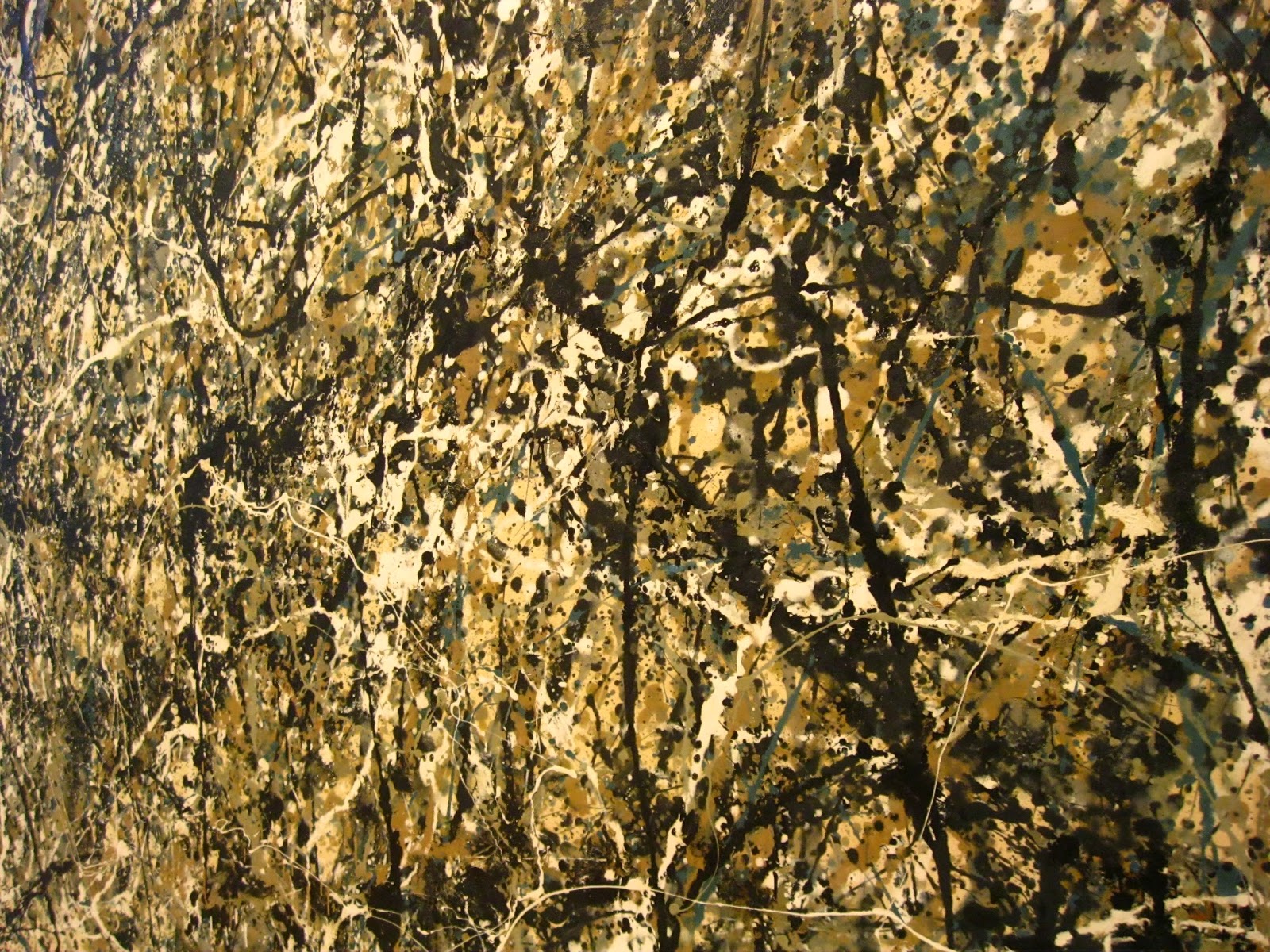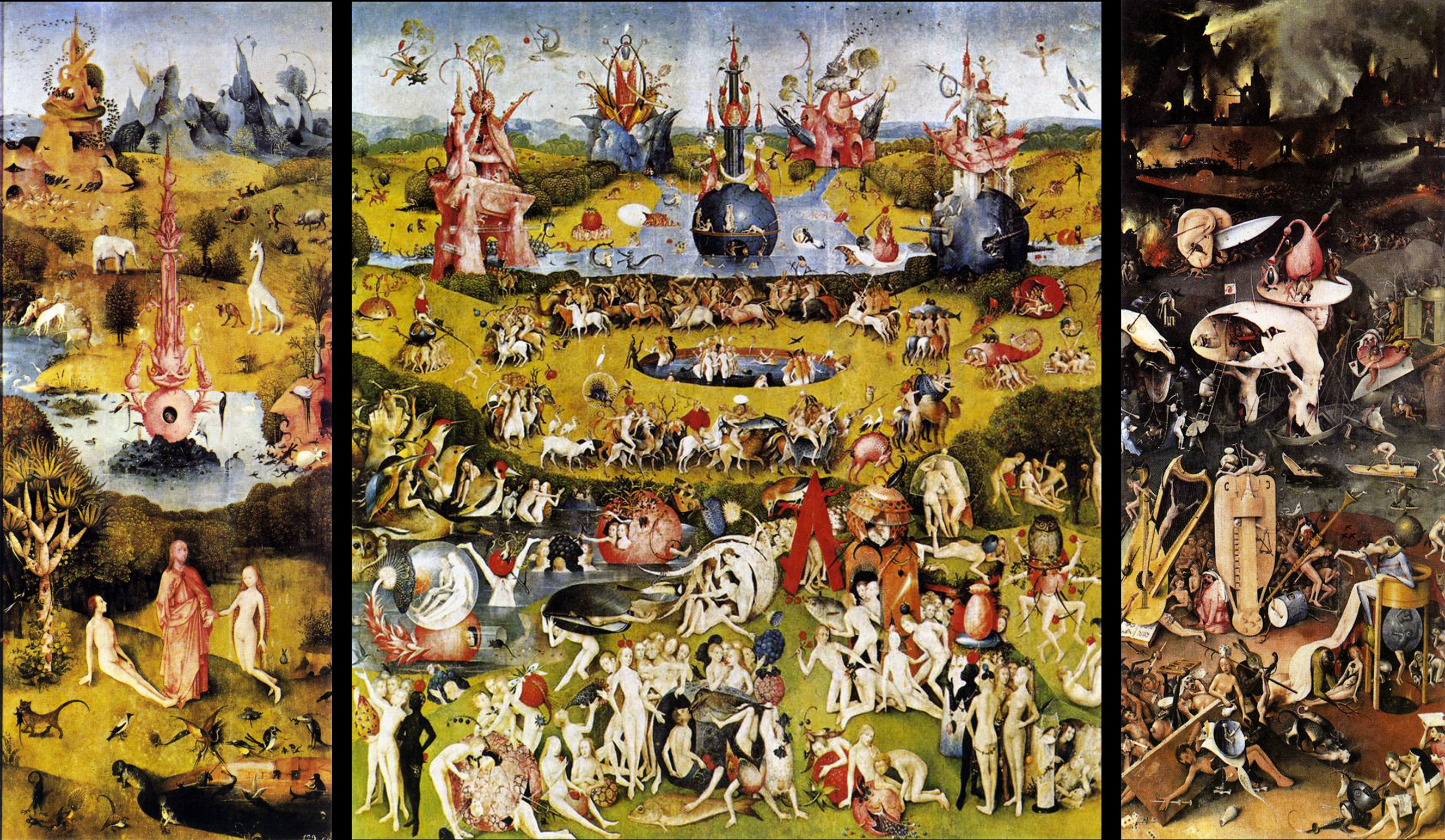Sometimes it seems that the whole concept of what art is comes into play- art/ not art. It's a cliché, but when people look at some guy in thigh high boots sewing merit badges into his skin or a bunch or horses tied up in an art gallery the saying 'Yes, but is it art?' seems to be what this whole concept is- the main difference between this and the Kitch idea such as a scarecrow with 'The Allen's' complete with misplaced apostrophe, is the the avant garde' art seems to be accepted as art by experts, both sides of art- just different experts have different views.
Having a clear idea about what art is or isn't is a comforting idea. Not having to ask the question of whether or not something is art prevents you from looking stupid in public. Some paint slapped onto a canvass that looks like something in the real world is easy to call art. A lot of the critics seem to want to classify everything as art as a way to insulate themselves from looking stupid at their own profession, and also to bolster their own egos. After all, if I'm the expert, whatever I say is or isn't true has to be the case, or else I'm talking out of my ass. (As it sometimes seems as if the 'experts' do on a regular basis.
The problem comes from the ideas, though. A Jackson Pollock is art and an Iron Maiden album cover isn't. Mike Parr holding his breath as long as he can is art, and a poster asking you to re elect Fred Thompson isn't. There doesn't seem to be a lot of rhyme or reason for most of the distinctions, mainly they seem to be based on if the artists' ideas are accepted by the public for whatever reason.

The very act of asking whether it's art or not breaks down the binary, as asking breaks down the binary, as just the idea that it can (or can't) be art enters into the mind, giving it at least some play. When you ask if something is art, then you open yourself to the idea of 'Ok, if it is in fact art, then why? How am I supposed to look at this piece and what am I supposed to get out of it?
With structural pieces like The Garden of Earthly Delights by Bosch, the message is, at least at first glance, fairly apparent and clear. Sin gets you to Hell. You can live well and have a lot of fun, but you'll pay for it in the end. Oh, and it's Adam and Eve's fault. While there may some other, deeper meaning to it, its primary meaning is really pretty apparent.

Now compare this with a performance piece where someone puts themselves in a wooden box. What's the meaning of this piece? While it might be possible to to get a meaning immediately- say, it's a statement against the oppressive wall of reality- this interpretation is not the only interpretation someone might come up with. For instance, it could be an attempt to become closer with nature. It could be a statement about art itself! There's no real narrative, and much is left to the imagination. The play on a deconstruction piece like this is far greater than the Bosch painting.
The deconstruction, avant garde' forms of art seem to have a role in making people better in their understanding of earlier forms of art. After all, since more is left to the imagination, there's more effort of the imagination involved. Consider it like a form of mental weight lifting. The harder you work, the harder you think about this piece, the easier it will be to understand it, and other pieces. The term 'No pain, no gain.' could be used in this situation, albeit in a joking manner, as the first time you really think about a piece that has you stunned and wondering what in the world it is could be likened to pain in comparison to what might be expected by the normal understanding of what art is.

Art is whatever it wants to be. Understanding it can be as simple or as complex as you want it to be. But when you push yourself out of your comfort zone, it can help you understand art on all levels better. The understanding that something you don't like is still art will help you grow as a human, well as an art observer. Trying to understand something that has you shaking your head at first glance can really expand your horizons, as well as your ability to understand the things that you like at first glance.
